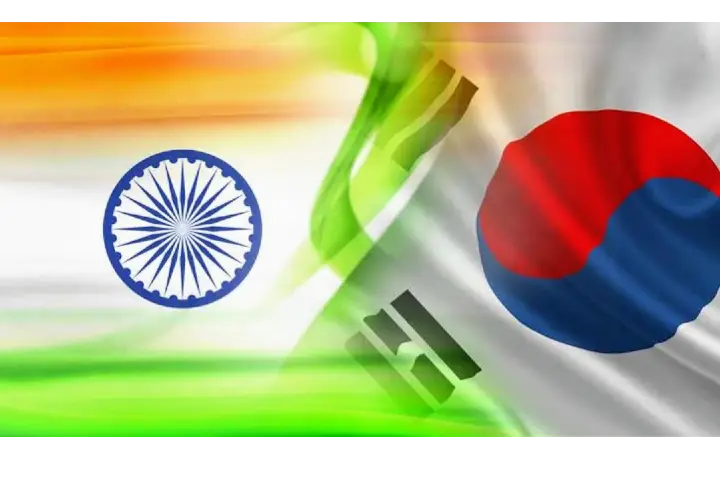Negotiations between India and South Korea on “upgradation” of the existing Comprehensive Economic Partnership Agreement (CEPA) are expected to close soon.
Talks are already on. India, which has exited from the Regional Comprehensive Economic Partnership (RCEP) in 2020, has pressed the pedal on forging bilateral trade agreements with several partners while revising the existing ones to make them more effective.
South Korea’s Ambassador to India Chang Jae-bok at the Korea India Fair in New Delhi said that CEPA serves as a core basis for economic cooperation between New Delhi and Seoul.
It commits both countries to lower or eliminate import tariffs on a wide range of goods, over the years and expand opportunities for investments and exchanging services. South Korea was expected to phase out or reduce tariffs on 90 per cent of Indian goods in the 10 years, while India on 85 per cent of Korean goods.
“The CEPA agreement serves as a core basis for economic cooperation between the two countries. I believe negotiations for increasing the level of openness should be finalized soon,” Chang said.
Chang was referring to the trade ministerial meeting held between Commerce & Industry Minister Piyush Goyal and his Korean counterpart Yeo Han-koo in New Delhi on January 11 this year.
Also read: South Korea "respects" India's decision to ban wheat exports–Ambassador
Despite stringent Covid 19 restrictions in 2021, bilateral trade between India and South Korea went up 40 per cent over the previous year touching $23.7 billion – the highest ever. In 2020, it was $16.9 billion. The two Asian economic giants have set a target of $50 billion by 2030.
As regards India’s trade deficit with Korea, Chang said it was inadequate to evaluate the two countries’ trade relations by looking only at the trade balance.
“Each side has a certain difference in terms of industrial competitiveness and another reason is that most Korean companies are importing intermediate goods from Korea to carry out their investments. I think that the two countries will need to be competitive to have a more balanced relationship,” he said.
India’s exports in the previous fiscal year touched $418 billion. Export order for food including processed food, pharma, medical and diagnostic products, technical textiles, chemical, plastics, electronics and networking products has shown a marked improvement.
According to the Federation of Indian Export Organisation (FIEO), an 8 per cent growth in exports is critical to achieve the milestone $ 5 trillion economy.




















